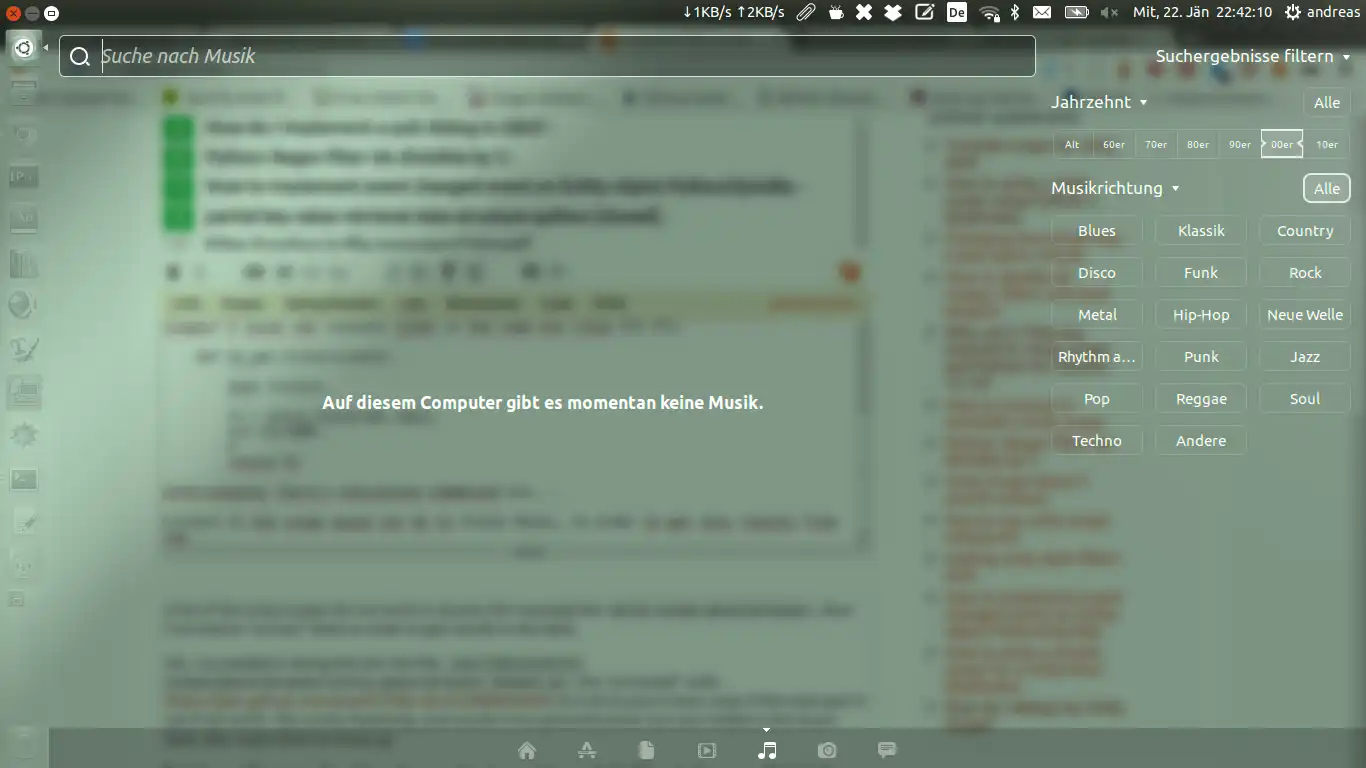很多Unity Scope在Ubuntu中无法正常工作(例如
好的,我成功地做到了这一点(对于文件:
但是我还有一个小问题:如何在Scope中实现可用的过滤器?我认为代码中相关的行是(第372行及之后)。
很不幸的是,这里的一切都被注释掉了,没有严肃的文档或类似的东西。
范围内的过滤器可以让我筛选音乐,例如只选择摇滚音乐等;我想截图已经解释了我的意思(它是德语)。
编辑:我找到了一个类似的加载器(unity-gdrive-scope):https://gist.github.com/wa4557/e3a9cdef5806dc3c13c9,在那里添加了过滤器。坦率地说,我不太理解这是如何工作的。但是在
unity-scope-gmusicbrowser),因此我尝试“修正”它们以便在Dash中获得结果。好的,我成功地做到了这一点(对于文件:
/usr/share/unity-scopes/gmusicbrowser/unity_gmusicbrowser_deamon.py:已“修正”的代码:https://gist.github.com/wa4557/d6cc4ec5354bbb95042b(即使主要部分不是我写的,将其发布在这里是否可以?))。这个方法非常完美,现在gmusicbrowser的结果可以在音乐Dash中显示出来,就像我想要的那样。但是我还有一个小问题:如何在Scope中实现可用的过滤器?我认为代码中相关的行是(第372行及之后)。
def do_get_filters(self):
'''
Adds filters
'''
fs = Unity.FilterSet.new()
#if FILTERS:
#
return fs
很不幸的是,这里的一切都被注释掉了,没有严肃的文档或类似的东西。
范围内的过滤器可以让我筛选音乐,例如只选择摇滚音乐等;我想截图已经解释了我的意思(它是德语)。

编辑:我找到了一个类似的加载器(unity-gdrive-scope):https://gist.github.com/wa4557/e3a9cdef5806dc3c13c9,在那里添加了过滤器。坦率地说,我不太理解这是如何工作的。但是在
do_get_filters函数中肯定有一些东西...